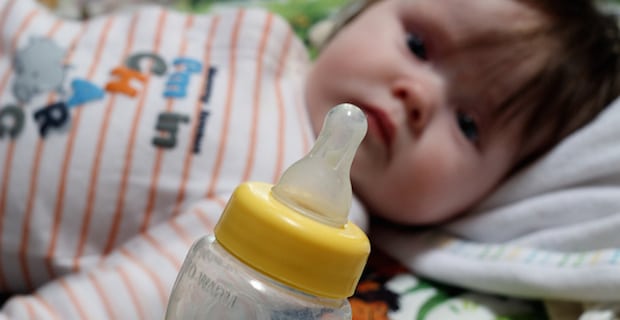
Ever since experts began telling us about the dangers of the plastics ingredient called BPA (bisphenol-A), numerous companies have changed their manufacturing process to eliminate the chemical toxin. Unfortunately, if you thought you had won the battle by turning to BPA-free plastic and BPA-free canned foods, guess what? Scientists have found that a chemical used to replace BPA, called BPS (bisphenol-S), could be just as dangerous.
Read more about controversial foods you are eating every day
BPA can leach into foods and beverages that are in plastic items, such as water bottles, baby products, and food storage containers, especially when they are exposed to heat (e.g., in a microwave). This hazardous chemical also has been used in infants’ plastic toys.
The danger of BPA lies in its ability to mimic estrogen and its potential to harm the brain and reproductive development in fetuses, infants, and children. Some studies have indicated it may increase the risk of cancer as well as the chances of developing asthma and respiratory tract infections during childhood.
Now, a new study indicates that BPS, which was chosen as a substitute for BPA because it seemed to be more resistant to leaching, is not safe either. According to a recent article in Scientific American, BPS can be found in the urine of nearly 81 percent of Americans and it can have an impact on the body’s cells similar to that of BPA. Some of the studies of BPS have revealed the following:
- In a report in Environmental Health Perspectives, researchers explained that even minuscule amounts of BPS have the ability to interfere with the normal functioning of cells and lead to cell death and potentially result in cancer, diabetes, birth defects, and asthma.
- In a new study appearing in the Proceedings of the National Academy of Sciences USA, a team from the University of Calgary used zebra fish to study the impact of BPA and BPS on the brain. (Scientists use zebra fish because, believe it or not, brain development in zebra fish is similar to that in humans, but much easier to study.) When the researchers exposed embryonic zebra fish to extremely low doses of BPA and BPS (1,000-folder lower than the accepted exposure in humans daily), they found a 180% and 240% increase, respectively, in new nerve cell generation (neurogenesis) in the area of the brain involved in hyperactivity. These findings lead the scientist to comment that “our results show that BPA-free products are not necessarily safe and support the removal of all bisphenols from consumer merchandise.”
- At the University of Cincinnati, a research team gave BPA and BPS to rats at various doses, including extremely low concentrations. They found that BPA and BPS caused heart rhythm irregularities even at the very low concentrations, but only among female rats. Why? It seems that BPS blocks an estrogen receptor that is present only in female rats. This receptor is involved with interruption of calcium channels, a common cause of heart arrhythmia in people.
Read more about BPA and obesity in young girls
One major problem is no federal agencies conduct any toxicity testing on new materials before they are made available to consumers. When BPS was introduced as an alternative to BPA, it was assumed to be safer, but now researchers are finding this is not true.
In fact, according to Deborah Kurrasch, who was part of the team that conducted experiments on the zebra fish, there are many different kinds of bisphenols, so the public needs to make “sure [manufacturers] don’t just go from BPA to BPS to BPF or whatever the next one is.”
What can consumers do to avoid BPA and BPS?
- Avoid using plastic products that are BPA-free
- Use glass, stainless steel, or ceramic food storage containers
- Do not use canned foods
- Switch to stainless steel water bottles
- Do you need that thermal paper receipt? BPS has replaced BPA in cash register receipts and was found at levels similar to those of BPA in an analysis of 111 thermal paper samples.
- Take supplements that can help your body eliminate xenoestrogens from your body (chemicals like BPA and BPS that mimic estrogen in our bodies). One supplement in particular that I really like is called EstroSmart from Lorna Vanderhaeghe. According to their site it contains calcium D-glucarate, diindolylmethane (DIM), and sulforaphane which can help detoxify toxic estrogens from our bodies which wreak havoc on our hormones.
Image: Bradley Gordon




